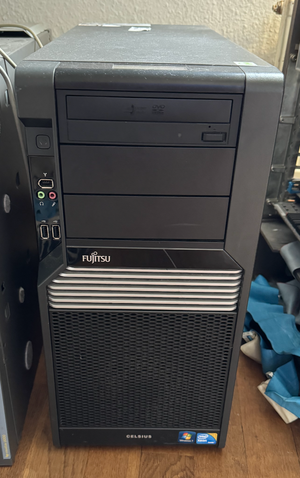SCO UnixWare 7.1.4 installation
UnixWare
"the other" Unix system from SCO. UnixWare started as a PC Unix port from Univel (an AT&T and Novell joint venture). Then Novell bought the Unix system laboratories from AT&T and UnixWare became a Novell product. In 1995 they sold Unix to SCO. It was slowly adapted into the SCO environment and UnixWare 7 was released in 1998 sporting a range of improvements. UnixWare was an interesting and capable system that was essentially destroyed by mismanagement. Support by the open source community pretty much died off in 2003 when the lawsuits started and UnixWare was pretty much dead then. SCO tried to unify the old SVR3.2 based Openserver and the SVR5 based UnixWare. The newer Openserver 6 was mostly ignored though.
Is it any good?
Sure. As far as the basic Unix goes, it is solid and has a number of features that are nice. It will support a lot of RAM, CPUs and it is pretty stable and fast. It's a bit like Solaris 2.5.1 to 9. The scoadmin tools are very convenient.
SCO? Aren't they evil?
Yes! And no. Old SCO wasn't evil, but quite a respectable Unix company. Then they sold the Unix business to Caldera (a Linux company) in 2001 and everything got a name change. Old SCO became Tarantella, Caldera became (new) SCO and this new SCO then became (in)famous for its lawsuits. Tarantella was bought by Sun in 2005. New SCO went bankrupt in 2012. The Openserver and Unixware systems predate all this lawsuit craziness and customers pretty much abandoned both systems as much as they could.
Installing UnixWare 7.1.4 on a PC
We will be installing UnixWare on this machine: A Fujitsu Celsius M470-2: 6-core Intel Xeon W3680, 22GB RAM, 500GB SSD, Nvidia Quaddro 2000 graphics.
installation media
Installation sequence:
configuring the system
.profile
MANPATH=/usr/local/man:/usr/dt/man:/usr/man:/usr/lib/scohelp/%L/man:/usr/share/man:scohelp:/usr/lib/scohelp/en_US.ISO8859-1/man:/usr/share/man PATH=/usr/local/bin:/usr/gnu/bin:/usr/ccs/bin:/usr/dt/bin:/bin:/usr/bin:/sbin:/usr/sbin:/usr/ccs/bin:/usr/ucb:/usr/dt/bin:/usr/bin/X11:/usr/java/bin export MANPATH PATH stty intr "^C" erase "^?" CFLAGS="-O -I/usr/local/include -L/usr/local/lib" CPPFLAGS="-I/usr/local/include" LDFLAGS="-L/usr/local/lib -Wl,-R,/usr/local/lib" export CFLAGS CPPFLAGS LDFLAGS
#CONFIG_SHELL=/bin/ksh CONFIG_SHELL=/usr/local/bin/bash export CONFIG_SHELL LC_CTYPE=de_DE.850 export LC_CTYPE if [ $TERM = "xterm-256color" ] then TERM=vt100; export TERM fi
.bashrc:
# set a fancy prompt PS1='\u@\h:\w\$ ' export PS1
building software
